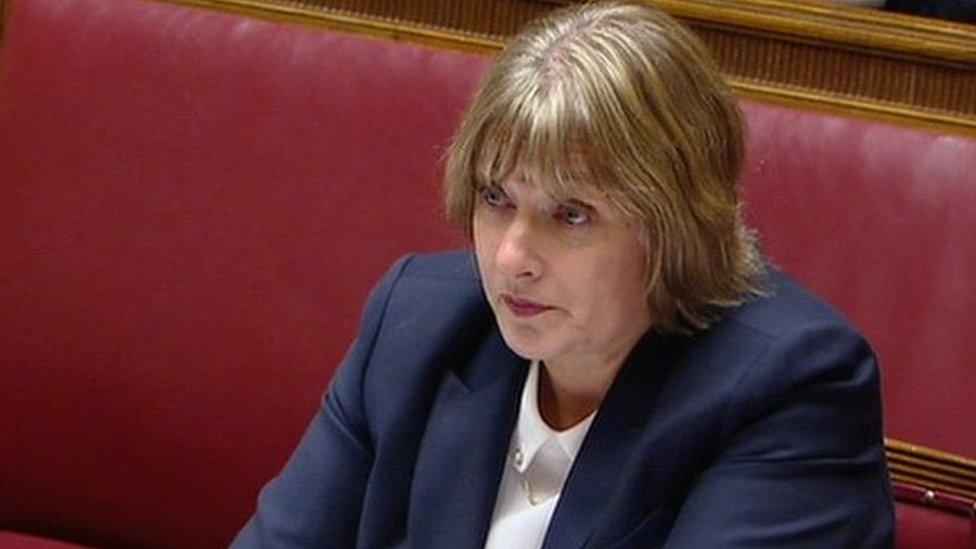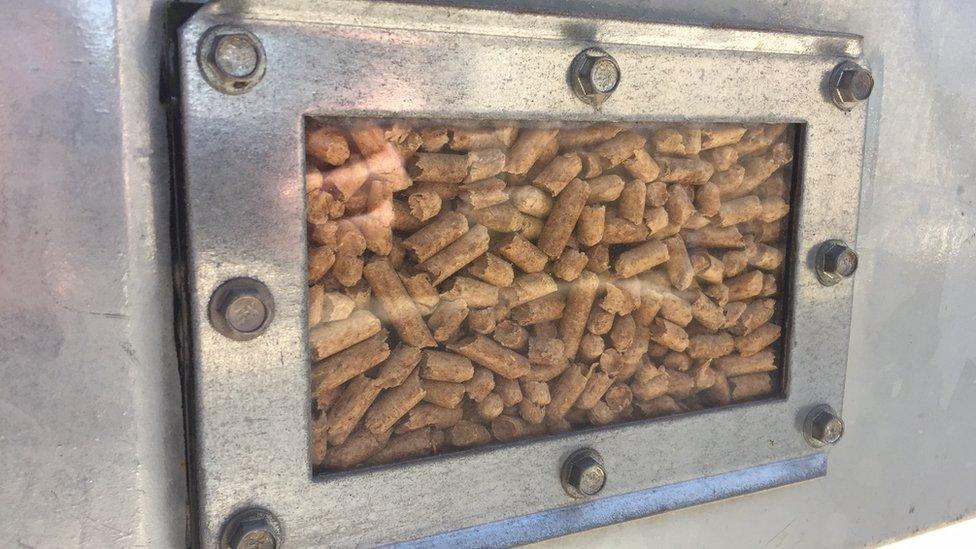RHI Inquiry: Foster not told of hike in RHI costs
- Published

Fiona Hepper headed the division that designed and implemented the scheme
The senior civil servant responsible for RHI did not tell her minister that the cost of the scheme had risen by more than £100m pounds after the decision was taken to go ahead.
Fiona Hepper headed the division that designed and implemented the scheme.
In 2011 enterprise minister Arlene Foster had already decided to proceed on the basis of a draft report from economic consultants.
When the final version arrived a month later the costs had gone up by a third.
Mrs Hepper was in charge of Energy Division and had advised the minister on the decision to go ahead.
She was asked at the public inquiry into the flawed renewable energy scheme on Thursday whether the hike in costs had made her consider going back to the minister to tell her.
Inquiry Panel member Dr Keith MacLean said the £111m difference in costings in the Cambridge Economic Policy Associates (CEPA)'s final report ought to have been enough to "set alarm bells ringing".
He said an increase of a third suggested either "the numbers aren't worth the paper they're written on, they're bouncing around all over the place" and they couldn't be trusted as a basis for proceeding.
"Or it says goodness me, these are real alarm bells, I need to go back to my minister and tell her about this."
In response Ms Hepper said: "I don't recall going back to her on that specific point."

The RHI scheme brought Stormont's institutions to collapse in January 2017
Earlier on Thursday Mrs Hepper said that it was "more than unfortunate" she missed its fatal flaw over overgenerous tariffs.
She said her small team had challenged consultants who carried out an economic appraisal and set the tariff rates.
The inquiry into the scandal has been told that all the work on the RHI scheme was being done by two staff.
Ms Hepper said they had questioned the assumptions underpinning the report as best they could with the experience that they had.
"We pushed this as far as we could with our knowledge and it's more than unfortunate that we did not pick up the error that they made within the team," she told the inquiry.
"I didn't pick it up and the whole scrutiny process didn't pick it up."
'Perverse incentive'
The inquiry, which is taking place at Stormont, was set up to investigate the circumstances surrounding the energy initiative, after its costs spiralled.

The RHI scheme subsidised the cost of claimants' fuel - mostly wood pellets - for running renewable heating systems
The RHI scheme offered to subsidise the cost of its claimants' fuel - mostly wood pellets - for running new renewable heating systems.
But the fuel actually cost far less than the subsidy they were receiving, effectively meaning that users could earn more money by burning more fuel.
The most recent estimate put the projected overspend at £700m over 20 years if measures to control the cost are not implemented.
The scandal generated significant public concern and the fallout led to a major political crisis in Northern Ireland that exists to this day.
The subsidy set by the consultancy CEPA created what has been called a "perverse incentive" for firms to burn more fuel to generate more money.
Ms Hepper said her departmental officials had worked through the tariff and thought that it was "viable".
She said the expertise bought in from the consultants had resulted in a calculation that was "wrong" and the staff had not spotted it.
'Absolute clarity'
The inquiry was told that Ms Hepper had been in charge from 2010 but left her post in November 2013, by which time the scheme had been running for about a year.
She said that a public consultation had finished by autumn 2013 and a "key part" of that work had been the cost control provisions.
"I left in the full understanding that they would be brought through to delivery in 2014," she added.
She said she also believed that a mandatory review of the scheme, which had been a condition of its approval, would also take place in that year.
In her witness statement she said the failure to do the review meant opportunities to identify flaws had been lost.
She said her submission to the then enterprise minister Arlene Foster in respect of the consultation had "absolute clarity" on the need for cost controls.
- Published23 October 2019

- Published7 November 2017

- Published5 December 2017
